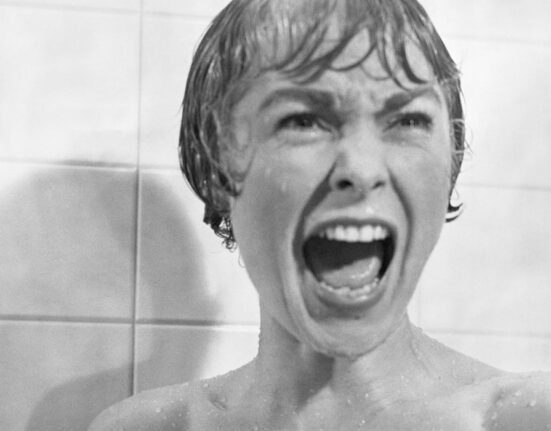In the quick-paced, technologically advanced world of today, many people are looking for ways to enhance their mental health. Solving puzzles is a fun and growingly popular technique. Playing puzzle games like crosswords, Sudoku, jigsaw puzzles, and brain teasers not only keeps you entertained but also has a number of positive effects on your mental health. The positive effects of puzzle-solving on mental health along with how adopting this activity into your daily routine can result in noticeable enhancements to your cognitive function and emotional well-being.
The benefit of puzzles on the brain
Studies show that elderly adults who regularly complete word and number puzzles have sharper minds. They played puzzles more often, and their brain function increased.
Study results show that solving crossword puzzles can postpone dementia by 2.5 years. This suggests that while partaking in mentally stimulating activities may aid in delaying the onset of symptoms, they are unable to completely prevent dementia. However, brain games are as part of a more comprehensive dementia prevention strategy that also involves physical activity and a healthy diet.
- Enhance short-term memory: Working on a puzzle strengthens the connections between brain cells, boosts mental agility, and does wonders for short-term memory.
- Enhance memory: Dopamine, a neurotransmitter that controls mood, memory, and focus, more readily as a result of solving puzzles. With each puzzle-solving achievement, dopamine is produced.
- Sets relaxation response: The body should avoid screen time before bed, despite the temptation to unwind by watching television or reading on a tablet. Puzzles offer a lot greater chance to unwind, making it simpler to get to sleep and truly unwind.
- Improve visual and spatial reasoning: You must determine how to fit the pieces or words into their respective locations by looking at the individual components of a crossword puzzle or the available spaces in a jigsaw puzzle. This will enhance your visual and spatial reasoning abilities if you do it frequently.
- Relieves stress: You can achieve the same results through jigsaw puzzles as from meditation. Your blood pressure and pulse rate drop as the stress of daily life departs and is replaced with a calm and peaceful feeling.
- Enhance logical reasoning: Puzzles are designed to challenge your mind. Crossword puzzles, riddles, word searches, and logic puzzles can all engage various brain regions and help you develop your analytical and critical thinking abilities.
Psychological benefits of playing with puzzles
- Meditative benefits: Jigsaw puzzle completion produces a sense of quiet and tranquillity, which is similar to the effects of meditation. We find ourselves focusing solely on the problem, clearing our minds of the worries and concerns we encounter every day when we focus our mind. By occupying and stimulating the intellect, solving puzzles helps people feel peaceful and at ease. As a jigsaw is put together, stress and worries about the outside world lessen as the mind concentrates on a gratifying and contemplative task.
- Improves Attention: Jigsaw puzzles have an addictive effect on individuals who attempt to finish them. You are powerless to stop once you get going! Even the captivating of most impatient persons is the pieces’ variety of colours, shapes, and sizes.
- Builds resilience: Jigsaw puzzles are challenging to finish, but once the last piece is in place, there is no greater sense of accomplishment. Jigsaw puzzle completion demands perseverance and is a crucial life lesson for all ages.
- Builds social connection: Jigsaw puzzles encourage conversation and connection because it takes cooperation to complete a challenging puzzle.
- Depression: Globally, more than 300 million people experience depression. Jigsaw puzzles alone cannot prevent or treat depression, but they can help develop healthy routines that promote introspection and downtime. In this study, as the person worked through the puzzle, it reminded them of warning signs to watch out for by displaying both the physical and mental symptoms of sadness.
- Self-esteem and confidence – As people take on and complete more difficult challenges, their confidence and self-esteem inevitably increase. Each successful resolution strengthens one’s confidence in their aptitudes and problem-solving talents, which results in a more favourable self-perception. This increased self-assurance can spread to all facets of life, inspiring people to approach new difficulties with hope.
Solving puzzles can benefit patients with Alzheimer’s and Dementia
Keeping your brain occupied with puzzles can have major memory benefits for you whether or not you worry about raising your IQ. This is highly helpful in postponing the signs of some degenerative mental diseases, such as dementia and Alzheimer’s disease.
Reduction in the amount of brain cell loss that often occurs in Alzheimer’s patients can be considerably, according to studies, by keeping the brain engaged through puzzle -solving and other comparable activities. Additionally, it strengthens the connections between existing neurons and promotes the formation of new ones. The likelihood of having Alzheimer’s may also be related to how long you have played puzzles on a regular basis. If these hypotheses are accurate, the sooner you start include puzzles in your daily life, the less likely you are to develop this disease.
Therapeutic importance of solving puzzles
An excellent treatment tool is a puzzle! helping to boost mood, ease anxiety, and create a sensation of relaxation. As they force you to focus in the present and put distractions aside, puzzles can also be an excellent approach to practice mindfulness. Puzzles can enhance focus and attention abilities and promote serenity for people with illnesses like ADHD.
Puzzles can represent numerous facets of life and human development. The process of solving puzzles can be used by therapists to demonstrate ideas like patience, teamwork, problem-solving abilities, and the ability to break down difficult problems into manageable components.
Working on puzzles improves problem-solving skills that can be used to overcome difficulties in real life. Through puzzle-solving, clients can acquire adaptive problem-solving abilities and use these abilities to address personal challenges outside of the treatment setting.
Suggestions of puzzles to exercise your brain
- Scrabble: This age-old word game not only awakens the competitive spirit in players of all age, but also increases vocabulary and sharpens concentration.
- Sagrada: Between a board game with rivalries and a brainteaser, Sagrada is a dice placement game. The objective is to properly assemble a stained glass window by positioning dice in accordance with the colour and shade while adhering to several rules.
- Rummikub: Your ability to plan ahead and recognise patterns could be improved by playing Rummikub.
- Jigsaw puzzles: Jigsaw puzzles are excellent because they simultaneously engage the left and right sides of the brain. Puzzles demand imagination, logic, and intuition, and it’s simple to lose yourself in them for hours at a time.
- Rubik’s cube: When you’re waiting somewhere, consider using your brain to solve the cube rather than scrolling around social media or watching TV. Warning: It’s harder than it seems.
- Sudoku: In the number problem known as Sudoku, you must fill in a grid with the digits from 1 to 9, with each number only appearing once in a row, column, or box. This timeless game sharpens your analytical thinking and attention abilities. Even if there are numerous mobile solutions available nowadays, using a pen and paper still has a stronger impact.
Numerous mental health advantages of solving puzzles include improved mood, increased social connection, and stimulation of cognitive function. Including puzzles in your daily routine can be a fun and convenient method to support mental health. Whether you choose a straightforward crossword or a mind-bending Sudoku, frequently working on puzzles can improve your mental health and make you smarter and happier. So the next time you need something to do to unwind and recharge, think about taking up a puzzle and discovering its myriad mental health benefits.













Leave feedback about this